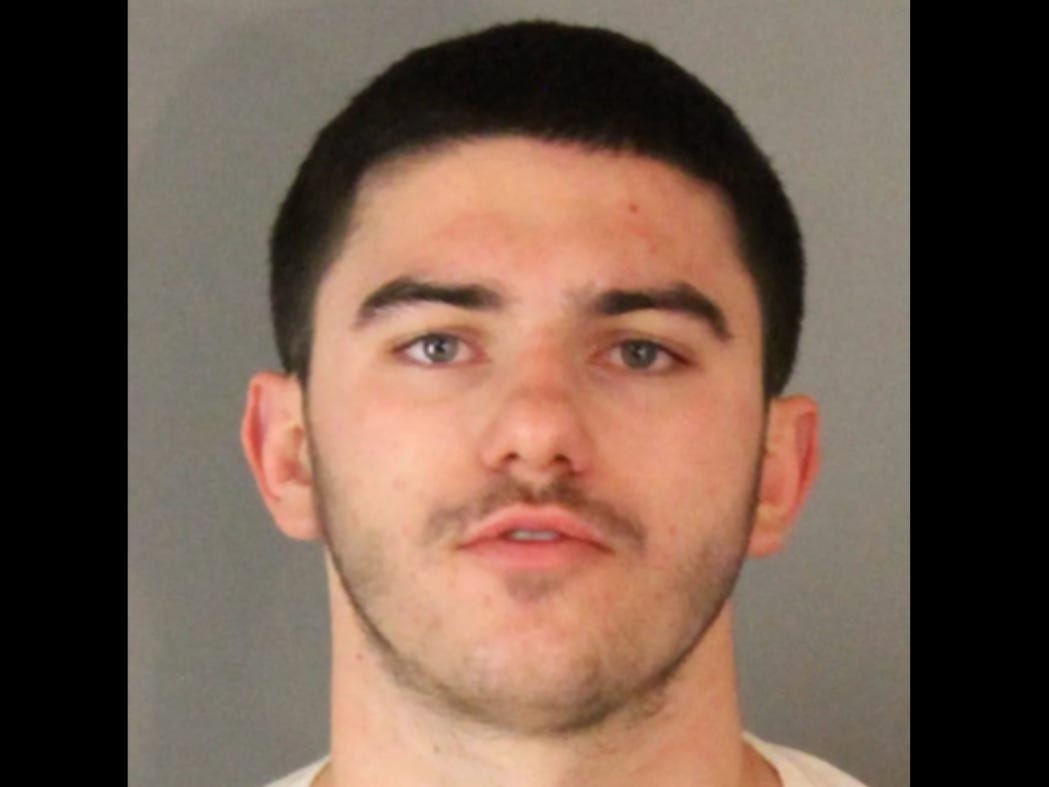The Death of Sixteen-Year-Old Aranda Briones
The Psychology of Grudges and the Path from Resentment to Deadly Revenge
In the quiet suburbs of Moreno Valley, California, a months-long grudge morphed into a calculated act of violence that ended with the death of a teenager. This tragedy shows how unresolved resentment can lead to lethal consequences years later. Let's examine the psychological underpinnings of grudge-holding and its lethal potential through the story of Owen Skyler Shover and Aranda Isabel Briones.
sixteen-year-old Aranda Isabel Briones
The Seed of Resentment
Our story begins on November 7, 2017, at Moreno Valley High School in Morena Valley, a city in Riverside County, California. Sixteen-year-old Shover was a skinny teenager with a history of pushing boundaries. For a still-unclear reason, he had tucked a handgun into the waistband of his jeans before leaving home. Rather than head to class, though, he and some friends decided to skip and hang out at a local park. Aranda was one of them.
Community Park was likely a regular hangout for teenagers looking for something more exciting than school. It was clearly on the school resource officer's radar, who went there that Tuesday morning looking for truant teens. Errant students fled in all directions. Panicked at the thought of the school official finding his gun, Shover tossed it to Aranda and told her to hide it. Terrified, she quickly threw it into a drainage canal, but not before the resource officer saw her and found the gun.
twenty-three-year-old Owen Shover
Aranda was immediately hauled before school administrators and interrogated. It didn't take long before she told the truth; the gun belonged to Shover. In November 2018, the local school board expelled both students.
At this point in our story, let's consider who is responsible for what. Shover is the person who chose to bring a gun with him to the park. He is the one who suddenly threw it to Aranda when his own a** was in jeopardy. We sure don't have any clue that he was concerned about the possible consequences for his friend. All Aranda did was skip school to hang out with her friends and try to get herself (and Shover) out of the jam he put her in. For that, she was expelled. Ah, you might think it's not good to hold on to bad feelings, but I can understand why she couldn't let this go.
But it wasn't Aranda who was holding a grudge. It was Shover.
The Psychology of Grudges
Why do some people cling to grudges long after the initial offense? Is it their personality or their injury? Is it the severity of the insult itself or the consequences? Recent research explains why some of us can't let some things go. For example, Elizabeth van Monsjou and colleagues (2023) identified some of the psychological components underlying a lot of grudge-holding:
Need for Validation
Individuals who hold grudges tend to seek validation from others for their anger or hurt. They may repeatedly recount their grievances to people they know, seeking agreement that they have been wronged. They're not looking to eliminate their anger but to justify it. Unfortunately, rehashing wrongs to invoke emotional support may also stoke the fires of rage and thirst for revenge. We see Shover's need for validation in his conversations with his brother; court records indicate that Shover frequently discussed his school expulsion, emphasizing how Aranda had "betrayed" him.
Sense of Moral Superiority
Grudge-holders often position themselves as morally superior to the person who wronged them. This view allows them to maintain a positive self-image while nurturing negative feelings towards others. In Shover's case, he likely viewed himself as loyal (for not revealing the gun initially) and Aranda as a traitor. This moral framing allowed him to justify his subsequent actions.
Reminders Reigniting Anger
Specific triggers or reminders can reignite the anger associated with the initial offense, keeping the grudge fresh. While Briones remained in the district, Shover was forced to relocate to Hesperia, some 50 miles north. The loneliness and depression he experienced following this geographical and social displacement planted the seed of a grudge that would grow over the next year. Pretty soon, the grudge-holder is not only blaming his target not only for the initial "injustice" but for everything else that is wrong in his life.
I also wonder how much social media fueled Shover's rage. Each post about her successes or happiness may have reinforced his negative feelings and sense of injustice. Moreover, social media can sometimes provide a false sense of connection or entitlement to information about others' lives. This illusion of intimacy can blur the lines between healthy interest and obsessive behavior, potentially escalating grudges to dangerous levels. Seeing updates about Briones' life continuing normally in their old school district may have served as constant reminders, rekindling his anger.
Grudge-holders often find themselves unable to move past the initial offense, replaying it in their minds and allowing it to color their perceptions of subsequent interactions. Recent neuroimaging studies have provided fascinating insights into the brain mechanisms underlying grudge-holding behavior. A 2020 study by Fourie et al. found that when individuals recalled events related to a personal grudge, areas in the brain associated with physical pain were activated, suggesting holding on to a grudge can actually cause physical discomfort. Understanding this neurobiological basis can help explain why letting go of grudges is crucial for mental and physical well-being. But it also shows how retaliation can become a viable alternative for those who can't.
For Shover, this inability to let go was evident in his actions a year after the expulsion. He spent months trying - and eventually succeeding - to get another gun. He repeatedly rehashed his resentment with his brother. Despite the time that had passed, he was still fixated on Briones and the perceived wrong she had done him.
Inability to Envision Moving On
Many grudge-holders believe their resentment will be permanent and unchangeable unless they even the score. There is the sense that the grudge is in control and has taken over their life; this sense of powerlessness is one of the things that motivates the need for revenge. Revenge is seen as a way to take back control.
This belief can become a self-fulfilling prophecy, discouraging efforts to resolve the conflict or change one's perspective. For Shover, this belief in permanence may have contributed to his decision to take such drastic action. If he viewed his grudge as a permanent part of his life, he may have seen violence as the only way to resolve it.
Closely related to the belief in permanence is the inability to imagine a future where the grudge no longer plays a central role. This perception can lead to tunnel vision, where all of life's experiences are filtered through the lens of the grudge. In Shover's case, his inability to envision moving on from the expulsion incident led him to plan an elaborate act of revenge rather than focusing on building a new life in his new location.
The Escalation to Violence
For Shover, the grudge simmered for nearly a year. On January 12, 2019, he reached out to Briones, inviting her to join him on what he described as drug deliveries and robberies. Andra was happy to mend the broken relationship and agreed to meet. They met at a local park at 5:00 pm the next day. Within an hour, she posted happy pictures of them on social media.
On January 13, 2019, a little before 6:00 pm, Aranda was last seen getting into Shover's car. Shover later told police that he had dropped her back off at the park and had seen her enter a four-door sedan. What actually happened was a meticulously planned act of revenge. Owen Shover's brother, twenty-seven-year-old Gary Anthony Shover, later testified that Owen had instructed him to prepare "shovels and lighter fluid." Cell phone data placed Shover's vehicle in the San Bernardino Mountains that evening, with a significant gap in activity suggesting the time when the crime likely occurred. By 10:00 pm, she was dead. Her body, hidden somewhere in the San Bernardino Mountains, has never been found.
Owen Skyler Shover was arrested on February 11, 2019, nearly a month after Aranda's disappearance. His brother, Gary Anthony Shover, was also taken into custody as an accessory to the crime. The trial began in August 2024 and painted a chilling picture of premeditated revenge. Prosecutors argued that Owen had nursed his grudge for nearly a year, meticulously planning his retaliation against the girl he blamed for his expulsion and relocation.
After deliberating for just over a day, the jury found Owen Skyler Shover guilty of first-degree murder, with a special circumstance of lying in wait. The verdict carried a mandatory sentence of life in prison without the possibility of parole. Gary Shover pleaded guilty to accessory after the fact and was sentenced to twelve months of probation and to pay victim restitution.
Conclusion
Shover had no criminal record before he murdered his innocent friend. The tragic death of sixteen-year-old Aranda Isabel Briones illustrates the destructive power of unresolved grudges and how distorted thinking can lead to violence. Understanding the psychological components of grudge-holding can help us recognize the early signs of destructive grudge-holding behavior. While not all grudges lead to violence, the potential for escalation is always present. As we continue to study the psychology of resentment and revenge, cases like these underscore the critical need for effective strategies to address and resolve interpersonal conflicts before they spiral out of control.
As always, thank you for reading this issue of The Mind Detective. Please pass it along to your true-crime-following friends. Happy Labor Day to those of you in the U.S.A.






Reading the list of psychological components of grudges helps me understand and recognize when I might be starting to foster a grudge. There was a point years ago when I was beginning to hold a grudge against someone who had wronged me. (It was not a criminal offense.) Fortunately, I ended up in counseling for a totally different issue, and the counselor's advice to forgive the offender helped me move on, though I still struggled from seeing the offender on a regular basis, as we attended the same church. I can see how if that grudge had gone unchecked, it could've become a much bigger issue, perhaps even self-harm. How tragic that this young man killed a young woman as revenge. Thank you for sharing, Joni.